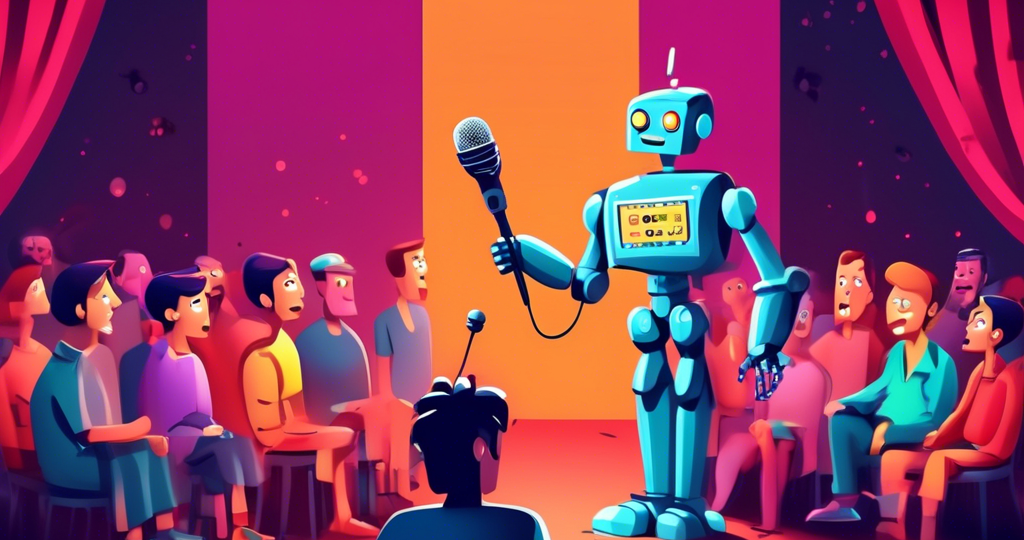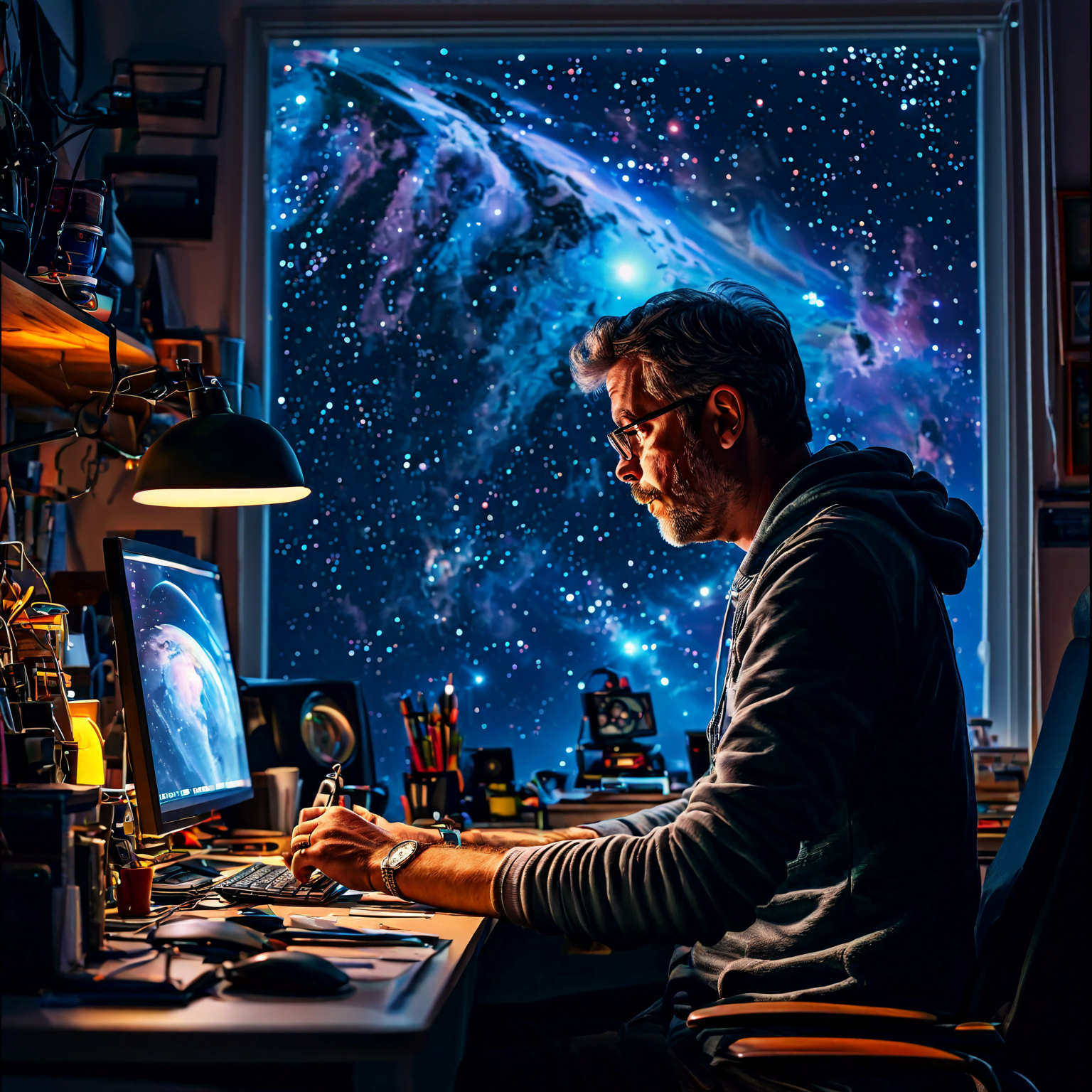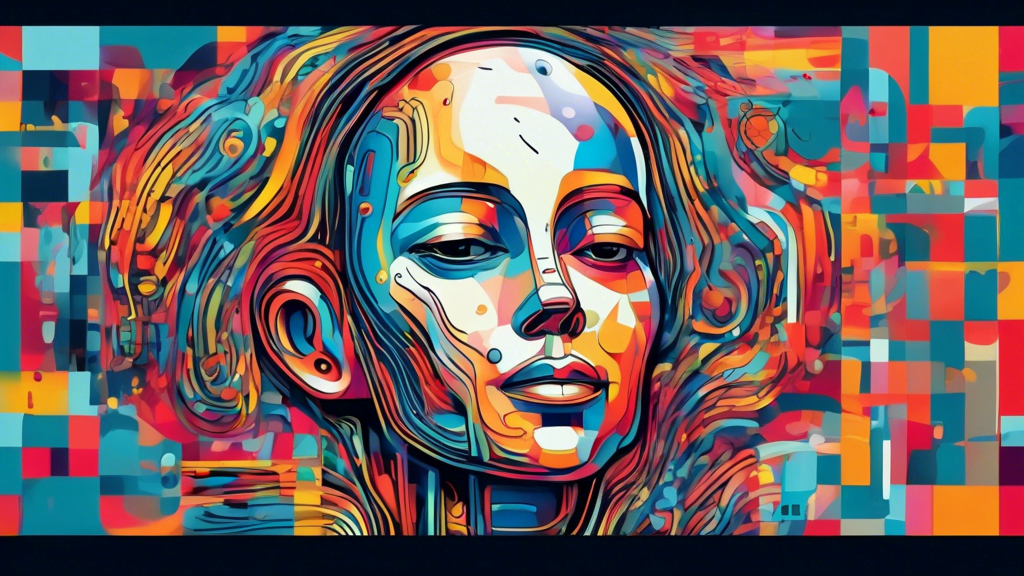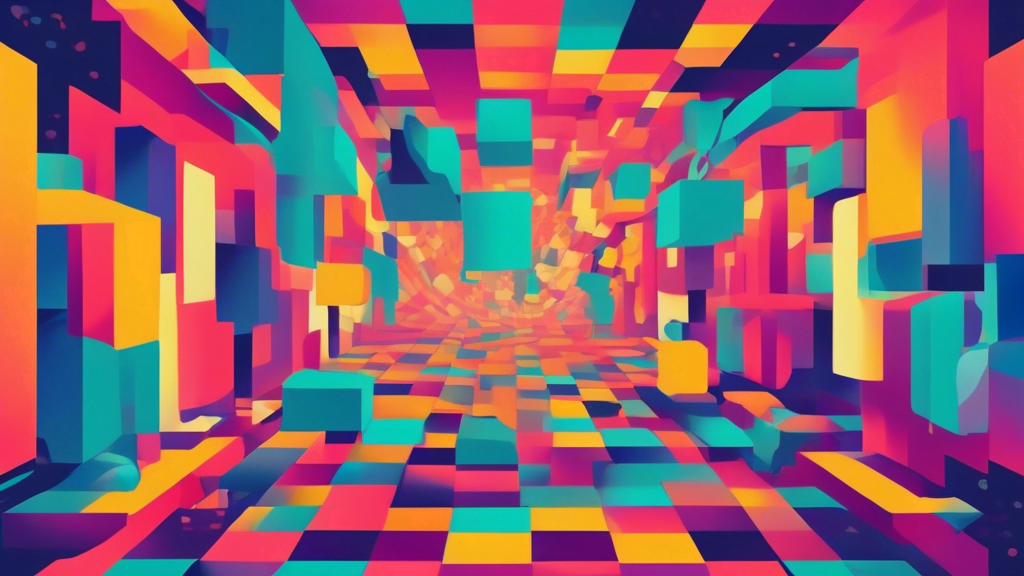AI Comedy Gone Wrong: ChatGPT And Google Gemini’s Epic Fail
June 21, 2024 | by Ron Super Scribe Burgundy

ChatGPT and Google Gemini Tried Writing Jokes For Comedians – The Results Were Hilariously Unfunny
TechRadar Exclusive: AI Takes on Stand-Up Comedy, Fails to Deliver the Laughs
The Experiment
Hold onto your funny bones, folks, because the future of comedy… isn’t funny. In a groundbreaking (and bellyache-inducing) experiment, TechRadar tasked the titans of AI, ChatGPT and Google Gemini, with the herculean task of writing jokes for professional comedians. The goal? To see if these artificial wits could tickle our funny bones or if their attempts at humor would fall flatter than a pancake in a mosh pit.
Spoiler alert: it was the pancake.
The Setup
We assembled a crack team of comedy veterans, each with decades of experience making audiences erupt in laughter. Their mission? To evaluate the AI-generated jokes blind, unaware of whether a human or machine crafted each punchline. From witty one-liners to elaborate storytelling, no comedic stone was left unturned. The comedians, known for their ability to find humor in the mundane, approached the task with open minds and a healthy dose of skepticism.
The Results
The results? Let’s just say the only tears these jokes induced were tears of despair.
ChatGPT, known for its uncanny ability to mimic human conversation, stumbled like a newborn giraffe on roller skates. Its jokes, while grammatically correct and structurally sound, lacked the soul, wit, and timing that make humor sing. Imagine a robot trying to tell a knock-knock joke—technically proficient, but utterly devoid of comedic timing or charm.
“It felt like reading a dictionary trying to be funny,” remarked one comedian, his face a mixture of amusement and disappointment. “Technically correct, but completely devoid of life.”
Google Gemini, with its vast knowledge base and advanced language processing capabilities, fared slightly better but ultimately missed the mark. Its jokes, while occasionally clever, often relied on tired tropes and predictable punchlines.
“It was like watching a stand-up routine from the 1980s—familiar, dated, and painfully unfunny.”
“It was like watching a rerun of a sitcom I’d seen a thousand times before,” commented another comedian. “Predictable, uninspired, and about as funny as a root canal.”
Why Did AI Fail at Comedy?
So, why did these AI behemoths, capable of composing symphonies and writing code, fail so miserably at something as seemingly simple as a joke? The answer lies in the very essence of humor itself.
Comedy, at its core, is an art form deeply rooted in the human experience. It’s about finding the absurd in the ordinary, the ironic in the tragic, the unexpected in the mundane. It requires an understanding of human emotions, social dynamics, and cultural nuances that AI, at least in its current state, simply cannot replicate.
AI can analyze data, identify patterns, and generate text that mimics human language. But it lacks the lived experience, the emotional intelligence, and the intuitive understanding of humor that make us laugh. It’s like trying to teach a robot to dance without giving it a body or a sense of rhythm—the essential ingredients are simply missing.
Our experiment revealed not only the limitations of AI in the realm of comedy but also the irreplaceable value of human creativity. Comedians, with their unique perspectives, experiences, and comedic timing, hold a special place in our hearts and on the stage. They are the masters of laughter, the alchemists of amusement, and their craft is something that AI, at least for now, can only dream of replicating.
The Future of Funny: Will AI Ever Make Us Laugh?
So, where does this leave the future of comedy? Will AI ever be able to craft jokes that rival the wit of human comedians? The answer, my friends, is a resounding maybe.
As AI continues to evolve, so too will its ability to understand and mimic human emotions. With advancements in machine learning, natural language processing, and emotional intelligence, AI may one day be able to grasp the nuances of humor that currently elude it.
Imagine an AI that can analyze audience reactions in real-time, adjusting its jokes and delivery based on the collective laughter (or groans) of the crowd. Or an AI that can personalize humor based on individual preferences, crafting jokes tailored to specific tastes and comedic sensibilities. The possibilities are as endless as they are intriguing.
However, even if AI reaches a point where it can generate genuinely funny jokes, it’s unlikely to replace human comedians entirely. The human element, the connection between performer and audience, the shared experience of laughter—these are all things that AI, no matter how advanced, can never fully replicate.
In the end, the future of comedy is likely to be a collaborative one. AI may serve as a valuable tool for comedians, providing inspiration, generating punchlines, and even acting as a comedic sparring partner. But the true masters of laughter, the ones who can make us double over in stitches, will always be those who understand the human condition and can translate that understanding into side-splitting humor.
My Conclusion and good by
So, the next time you find yourself in need of a good laugh, don’t reach for your smartphone just yet. Head to a comedy club, turn on a stand-up special, or seek out the company of friends who share your sense of humor. Because while AI may one day crack the code of comedy, for now, the funniest things in life are still human.
RELATED POSTS
View all



